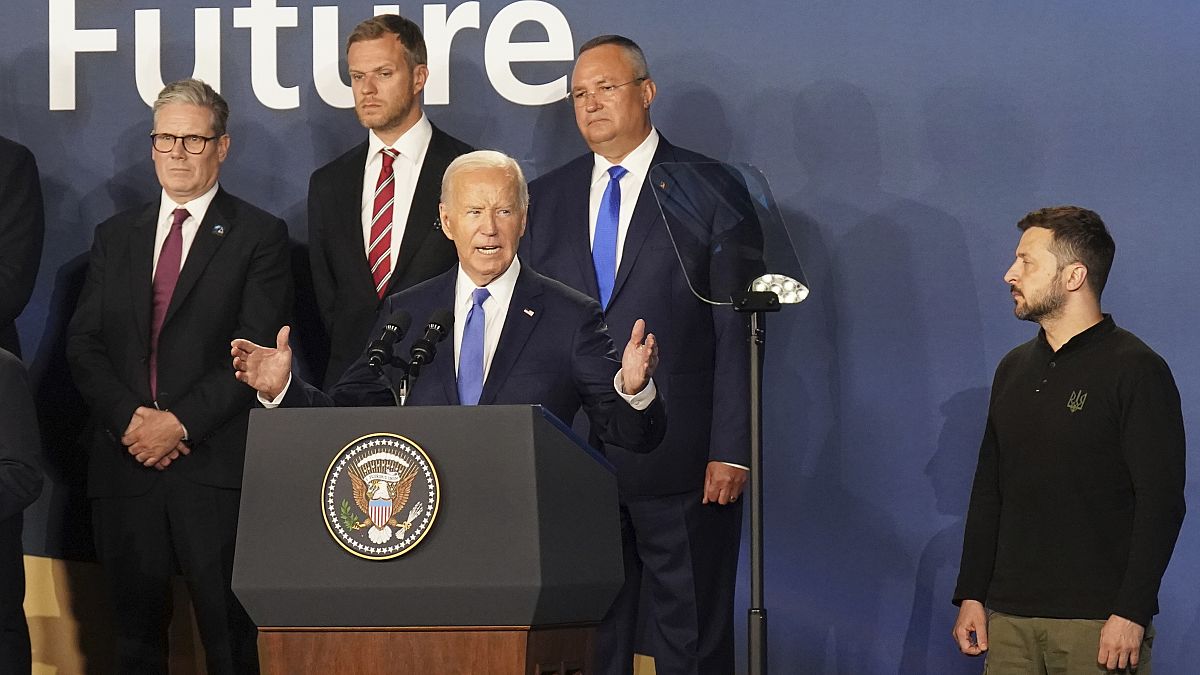The NATO summit in Washington and Viktor Orbán’s recent peace mission to Moscow and Beijing have been hot topics in European politics. Orbán, the Hungarian prime minister, faced backlash from EU leaders for his attempts to mediate peace in Ukraine. His efforts were criticized by Polish Prime Minister Donald Tusk, who emphasized that no one has the right to speak on behalf of Ukraine without full agreement from all parties involved. This incident has caused tension within the EU, with some member states even considering shortening Hungary’s presidency term.
At the NATO summit, US President Joe Biden condemned Russian President Vladimir Putin’s intentions in Ukraine, stating that Putin aims to destroy Ukraine’s democracy and culture. The summit was meant to showcase unity within the alliance, but it was marred by various ongoing crises, including concerns about President Biden’s fitness for office. Despite these challenges, Ian Lesser, executive director of the German Marshall Fund, highlighted the importance of deterring Russia and supporting Ukraine’s defence needs in light of the ongoing war in Europe.
As NATO aims to navigate potential disruptions from former US President Donald Trump and far-right forces in Europe, there are looming challenges ahead. NATO must work towards deterring Russian aggression and maintaining unity within the alliance. Lesser also emphasized the importance of European countries increasing their defence spending, as the demands for military resources continue to rise. With a potential return of Trump to office, NATO must prioritize stability and cooperation in order to weather any future storms.
The growing influence of far-right and anti-NATO sentiments in European politics presents an additional challenge for the alliance. Parties on both ends of the political spectrum may not prioritize defense spending or transatlantic relationships, posing a threat to NATO’s objectives. Striking a balance between social programs and military needs is crucial, as the alliance faces increasing pressure to allocate resources effectively. The stresses on NATO, both politically and financially, highlight the importance of maintaining unity and a common vision for the future.
The recent appointment of Mark Rutte as NATO’s new secretary general reflects the alliance’s commitment to consensus-based decision-making. Rutte’s selection was met with support and confidence in his leadership abilities, underscoring NATO’s desire for stable leadership during turbulent times. As NATO navigates various challenges, including the ongoing crisis in Ukraine and potential disruptions from nationalist forces, strong leadership is essential for steering the alliance in the right direction. Rutte’s appointment signifies a shared commitment to overcoming obstacles and maintaining NATO’s relevance in an increasingly complex geopolitical landscape.










